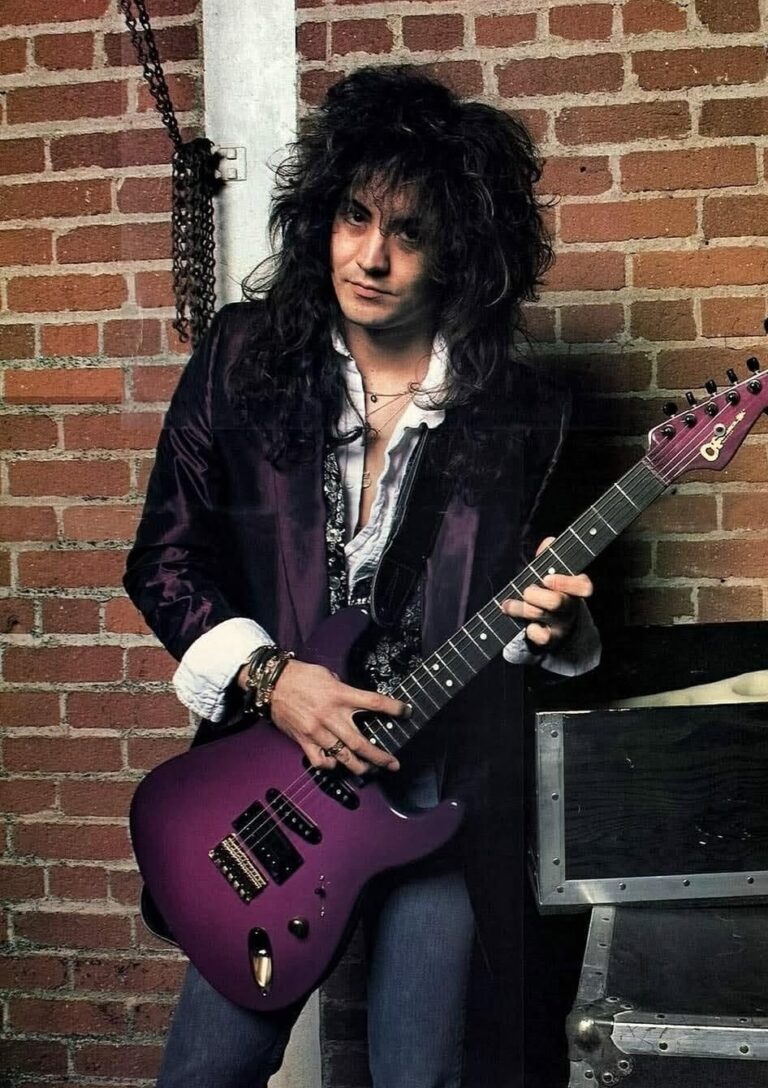In a candid new interview, legendary guitarist Jake E. Lee has opened up about his complex relationship with Ray Gillen, the charismatic frontman of the short-lived hard rock band Badlands, who tragically passed away in 1993. Lee’s remarks, delivered with a mix of regret and restraint, shed light on the unspoken tensions that simmered beneath the band’s high-octane performances and the personal demons that ultimately claimed Gillen’s life.
Badlands, formed in 1989 after Lee’s departure from Ozzy Osbourne’s band, was a supergroup of sorts in the late ’80s hair metal scene. Featuring Lee on guitar, Gillen on vocals, Eric Singer (later of Kiss) on drums, and Greg Chaisson on bass, the quartet released two critically acclaimed albums—Badlands (1989) and Dusk (1991)—before imploding amid internal strife and Gillen’s worsening health. Their blues-infused heavy metal sound, marked by Gillen’s soulful, Robert Plant-esque wails, earned them a devoted cult following, but the band’s story is one of unrealized potential, overshadowed by Gillen’s battle with AIDS, which he contracted through intravenous drug use.
In a recent podcast appearance on No Jumper—aired just days ago—Lee, now 68 and still touring sporadically with his solo project, revisited the era with uncharacteristic vulnerability. The conversation turned to rumors of substance abuse within the band, a perennial issue in the excess-fueled rock world of the time. When pressed about whether he ever addressed Gillen’s escalating drug problems head-on, Lee paused before delivering the line that has resonated with fans: “I wasn’t going to confront him about it.”
The full context reveals a deeper layer of camaraderie and caution. “Ray was the fire, man—the voice that made it all click,” Lee said, his voice steady but eyes distant. “We’d party hard after shows, like everyone did back then. But when it started getting out of hand… I saw the signs. The crashes, the paranoia. I knew what it was leading to, but I wasn’t going to confront him about it. That’s not how we operated. You don’t rat out your brother in this life.”
Lee’s reticence, he explained, stemmed from the unspoken code of the road: loyalty above intervention. “We were all in the trenches together,” he continued. “Ray had his demons, I had mine. Ozzy’s camp had already burned me once—accusations flying, lawyers circling. I wasn’t about to play savior and risk blowing up what we had.” The guitarist admitted to subtle attempts at steering Gillen toward help, like booking cleaner hotel rooms or suggesting breaks from the tour grind, but nothing direct. “Hindsight’s a bitch,” Lee reflected. “If I’d grabbed him by the collar that one night in ’91, after the Dusk sessions when he was tweaking bad… maybe. But I didn’t.”
Gillen’s death at age 34 sent shockwaves through the rock community, coming just two years after Badlands’ final tour and amid whispers of a third album that never materialized. Diagnosed with AIDS in 1991, he kept his condition private until the end, succumbing on December 1, 1993, in New York City. Tributes poured in from contemporaries like Osbourne, who called him “a voice from heaven gone too soon,” and Paul Rodgers, whose style Gillen often channeled.
Since then, Lee’s career has been a steady burn rather than a blaze. After Badlands, he formed Army of One and released solo records, but he’s largely avoided the nostalgia circuit until recently. This interview, part of a broader tour documentary in production, marks his first deep dive into Gillen’s story in over a decade. Fans have praised the honesty, with social media buzzing about Lee’s raw authenticity. “It’s like hearing the missing track from Dusk,” one commenter noted on X (formerly Twitter).
The reflection comes at a poignant time. Badlands’ catalog has seen renewed interest on streaming platforms, with Badlands climbing classic rock charts amid vinyl reissues. Lee hinted at possible unreleased demos surfacing, teasing “some magic we left in the vault—Ray killing it on ‘Winter’s Call.'” Yet, the conversation left a somber undercurrent: the “what ifs” of a life cut short.
Rock ‘n’ roll’s toll on its icons is well-documented—Gillen joins a grim roll call including Sid Vicious, Bon Scott, and too many others felled by addiction. Lee’s words serve as both elegy and cautionary tale, reminding us that even in the spotlight, some confrontations remain forever unspoken.
